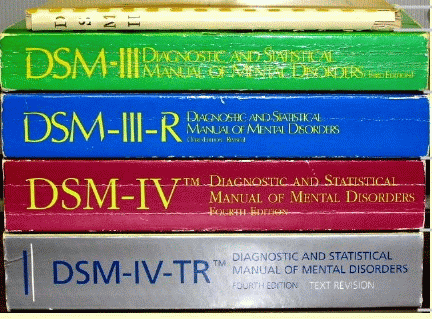
The medical model applied to psychotherapy and counseling fosters the idea that “treatment” and “diagnosis” of one’s “mental conditions” is something that is largely external. Either something or someone is going to cure you and “make” you feel all better. Yet that’s not the way it works. The way human beings solve problems is to look for errors in their thinking, and/or to find new, innovative ways of thinking to improve one’s life and, in the process, improve one’s emotional state. After all, in order to feel good about oneself and life, one must first develop a worthwhile life. Psychology and psychiatry made a horrible wrong turn when they adapted the medical model, first as a metaphor and later quite literally, as a way to encourage people to solve problems. While there’s great faith in the medical model on the part of many professionals in the field, there are few satisfied patients out there who have actually benefited from its adoption.
What happens in the mental health field is that people walk away from psychiatrists and therapists with labels describing what their “mental disease” or disorder is thought to be. Everyone has a label of some sort, be it “depression”, “anxiety”, “ADD”, “anger management problems”, “Bipolar”, or whatever latest fashion the self-help industry dishes up for the masses. “Fine, I have a label — so what next?” There’s little or no guidance on that one, other than take medication and hope for the best. (In the old days it was go into years of pointless psychoanalysis and hope for the best. Nothing has really changed.) Human beings must break free from this disastrous approach to handling human consciousness. It makes much more sense, and is ultimately more healing, to look at your emotional outlook as the way you approach life objectively. “What are my beliefs and attitudes? How do I translate these beliefs and attitudes into choices, over time? Which of these beliefs and attitudes work — and make sense? Which ones do not?” A therapist can be very helpful in challenging you to look objectively at yourself, the choices you have made, the premises and ideas on which those choices are based — and what needs changing. Now THAT’S therapy.
